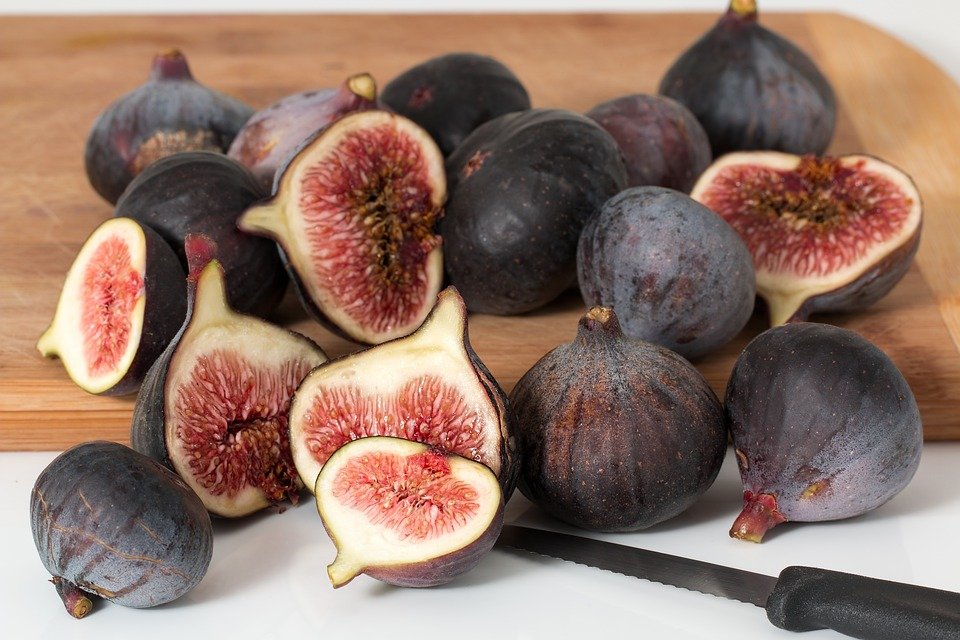Lose Weight with a Gluten-Free Diet: A Comprehensive Guide
In today’s society, weight loss has become a common goal for many individuals. With various diets and trends emerging, it can be overwhelming to decide which path to take. One such diet that has gained popularity in recent years is the gluten-free diet. Gluten is a protein found in grains such as wheat, barley, and rye. People with celiac disease or gluten sensitivity must avoid gluten to maintain their health. However, many others have also adopted the gluten-free diet as a means to shed unwanted pounds. In this comprehensive guide, we will explore the benefits, challenges, and strategies for losing weight on a gluten-free diet.
Understanding the Gluten-Free Diet
The gluten-free diet involves eliminating all sources of gluten from your meals. This includes foods like bread, pasta, cereals, and baked goods that typically contain wheat. Instead, individuals following a gluten-free diet rely on alternative grains such as rice, corn, quinoa, and gluten-free oats. Additionally, a gluten-free diet encourages the consumption of fresh fruits, vegetables, lean proteins, and healthy fats.
The Link Between Gluten and Weight Gain
While gluten itself does not directly cause weight gain, some studies suggest that gluten may contribute to weight gain indirectly. For individuals with undiagnosed celiac disease or gluten sensitivity, consuming gluten can lead to inflammation in the gut, impairing nutrient absorption and causing bloating. This bloating can make individuals feel heavier and may result in temporary weight gain. Furthermore, some gluten-containing products, such as processed snacks and refined carbohydrates, tend to be high in calories and low in nutrients, which can contribute to weight gain over time.
The Benefits of a Gluten-Free Diet for Weight Loss
1. Reduced Consumption of Processed Foods: Following a gluten-free diet often requires individuals to avoid processed foods that are high in calories, unhealthy fats, and added sugars. Instead, individuals tend to opt for whole, unprocessed foods, which are generally lower in calories and higher in nutrients.
2. Increased Intake of Fruits and Vegetables: A gluten-free diet encourages the consumption of fresh fruits and vegetables, which are rich in fiber, vitamins, and minerals. These nutrient-dense foods can help individuals feel fuller for longer, reducing the likelihood of overeating and aiding in weight loss.
3. Focus on Healthy Substitutes: When individuals eliminate gluten from their diet, they often seek out alternative grains and flours. These substitutes, such as quinoa, almond flour, and coconut flour, not only provide variety but also offer nutritional benefits. These alternatives tend to be higher in protein, fiber, and healthy fats compared to their gluten-containing counterparts.
4. Improved Digestive Health: For individuals with undiagnosed celiac disease or gluten sensitivity, eliminating gluten can alleviate symptoms such as bloating, gas, and abdominal discomfort. By improving digestive health, individuals may experience better overall well-being, leading to increased motivation for weight loss efforts.
Challenges and Strategies for Losing Weight on a Gluten-Free Diet
1. Limited Food Choices: Adhering to a gluten-free diet can initially feel restrictive due to the elimination of gluten-containing foods. However, with careful planning and education, individuals can discover a wide range of delicious gluten-free options. Exploring ethnic cuisines, experimenting with new recipes, and utilizing gluten-free substitutes can help expand food choices and make the diet more enjoyable.
2. Hidden Sources of Gluten: Gluten can hide in unexpected food products such as sauces, dressings, and processed meats. It is crucial for individuals following a gluten-free diet to read labels carefully and be aware of potential cross-contamination. Consulting with a registered dietitian who specializes in gluten-free nutrition can provide valuable guidance in navigating hidden sources of gluten.
3. Nutrient Deficiencies: Eliminating gluten-containing grains may increase the risk of nutrient deficiencies, particularly in vitamins such as B vitamins and iron. To ensure adequate nutrient intake, individuals should focus on consuming a variety of gluten-free whole grains, lean proteins, and fruits and vegetables. Additionally, considering a gluten-free multivitamin or speaking with a healthcare professional can help address any potential deficiencies.
4. Emotional and Social Challenges: Adhering to a gluten-free diet can sometimes be emotionally and socially challenging. Dining out or attending social gatherings may require additional planning and communication to ensure gluten-free options are available. Building a support system of friends, family, or online communities can provide encouragement and guidance during such situations.
Conclusion
A gluten-free diet can be an effective tool for weight loss, particularly for individuals with celiac disease, gluten sensitivity, or those seeking to reduce their consumption of processed foods. By focusing on whole, nutrient-dense foods and making informed choices, individuals can achieve their weight loss goals while maintaining a healthy lifestyle. However, it is important to consult with a healthcare professional or registered dietitian before making any significant dietary changes. Remember, weight loss is a journey that requires patience, consistency, and a holistic approach.
Top Questions Concerning Lose Weight Gluten Free Diet
What is a gluten-free diet?
A gluten-free diet is a dietary approach that excludes the protein gluten. Gluten is commonly found in grains such as wheat, barley, and rye. This diet is primarily followed by individuals with celiac disease or gluten sensitivity, but it has gained popularity among those seeking weight loss as well.
Important information:
1. A gluten-free diet eliminates foods like bread, pasta, and cereals that contain gluten.
2. It is essential to read food labels carefully as gluten can be hidden in various processed foods.
3. Following a gluten-free diet can be challenging, but there are plenty of naturally gluten-free foods available to incorporate into your meals.
Does a gluten-free diet help in losing weight?
While a gluten-free diet is not inherently designed for weight loss, it can lead to weight loss due to various reasons. However, weight loss results may vary from person to person depending on their individual circumstances and dietary choices.
Important information:
1. Eliminating gluten from your diet may reduce your overall calorie intake, as many gluten-containing foods are high in calories.
2. A gluten-free diet may improve digestion and alleviate gastrointestinal symptoms, which can indirectly contribute to weight loss.
3. Making healthy food choices and portion control are still crucial factors in achieving weight loss on a gluten-free diet.
Can a gluten-free diet be unhealthy for weight loss?
A gluten-free diet can be unhealthy for weight loss if it solely focuses on processed gluten-free products that are often high in calories, sugar, and unhealthy fats. It is important to prioritize whole, nutritious foods to maintain a balanced diet while avoiding gluten.
Important information:
1. Processed gluten-free products like cookies, cakes, and snacks can be high in calories and low in nutrients.
2. A gluten-free diet should focus on incorporating naturally gluten-free foods such as fruits, vegetables, lean proteins, and whole grains like quinoa or rice.
3. It is important to consult with a healthcare professional or a registered dietitian to ensure you are meeting your nutritional needs while following a gluten-free diet for weight loss.
Are there any benefits to following a gluten-free diet?
Following a gluten-free diet can have several benefits for individuals with celiac disease or gluten sensitivity. However, for those without these conditions, the benefits may not be as significant.
Important information:
1. A gluten-free diet is essential for individuals with celiac disease to prevent damage to their small intestines and alleviate symptoms.
2. Some people without celiac disease may experience improvements in digestion, energy levels, and skin health when following a gluten-free diet, although this may be due to other dietary changes rather than the elimination of gluten.
3. It is important to note that a gluten-free diet is not recommended for everyone, especially if you do not have gluten-related health issues.
How to effectively lose weight on a gluten-free diet?
Losing weight on a gluten-free diet follows similar principles to any other weight loss plan. It requires a combination of healthy eating, portion control, regular physical activity, and lifestyle changes to achieve sustainable weight loss.
Important information:
1. Focus on whole, natural foods like fruits, vegetables, lean proteins, and gluten-free whole grains.
2. Be mindful of portion sizes and avoid overeating, as excess calories can hinder weight loss efforts.
3. Incorporate regular exercise into your routine, aiming for a combination of cardiovascular exercises and strength training to boost metabolism and burn calories.
Introduction
The gluten-free diet has gained significant popularity in recent years, with many individuals adopting it as a means to lose weight. However, there are several common misconceptions surrounding the effectiveness of a gluten-free diet for weight loss. In this article, we will delve into these misconceptions and provide a clear understanding of the relationship between a gluten-free diet and weight loss.
Misconception 1: All gluten-free products are healthy
One common misconception is that all gluten-free products are automatically healthy and conducive to weight loss. While it is true that gluten-free products are free of wheat, barley, and rye, they often contain alternative ingredients to replicate the texture and taste of gluten-containing foods. These substitutes, such as rice flour or potato starch, can be high in calories and low in nutritional value. Therefore, consuming excessive amounts of gluten-free products may lead to weight gain rather than weight loss.
Misconception 2: Gluten-free automatically means low-carb
Another misconception is that gluten-free automatically translates to a low-carbohydrate diet. While it is true that gluten-containing grains are high in carbohydrates, there are plenty of gluten-free alternatives that are equally high in carbs. For instance, gluten-free breads or pastas made from alternative grains like corn or rice can have a similar or even higher carbohydrate content compared to their gluten-containing counterparts. Therefore, it is important to carefully read labels and choose gluten-free options that are also low in carbs if weight loss is the goal.
Misconception 3: Gluten-free automatically means low-calorie
Similar to the previous misconception, many individuals assume that a gluten-free diet automatically equates to a low-calorie diet. While certain gluten-free foods, such as fruits and vegetables, are naturally low in calories, there are also numerous gluten-free products that are high in calories. For example, gluten-free cookies or cakes often contain a higher fat and sugar content to compensate for the lack of gluten. Consequently, consuming excessive amounts of these high-calorie gluten-free treats can hinder weight loss efforts.
Misconception 4: Gluten-free diet alone guarantees weight loss
Some people believe that simply following a gluten-free diet will automatically lead to weight loss. However, weight loss is a complex process that involves various factors, including overall calorie intake, portion control, physical activity, and individual metabolism. While eliminating gluten from the diet may have some potential benefits for certain individuals, it is not a guarantee of weight loss. It is crucial to adopt a balanced and calorie-controlled approach to achieve sustainable weight loss.
Misconception 5: Gluten-free diet is suitable for everyone
Lastly, there is a misconception that a gluten-free diet is suitable for everyone, regardless of their individual health needs or conditions. While individuals with celiac disease or gluten sensitivity must strictly adhere to a gluten-free diet for medical reasons, it may not be necessary or beneficial for everyone. For those without specific gluten-related conditions, eliminating gluten from the diet can lead to nutrient deficiencies, as gluten-containing grains are a source of important vitamins, minerals, and dietary fiber. It is always recommended to consult with a healthcare professional or registered dietitian before making significant dietary changes.
In conclusion, the misconceptions surrounding a gluten-free diet and weight loss are plentiful. It is crucial to recognize that not all gluten-free products are healthy or low-calorie, and that a gluten-free diet alone does not guarantee weight loss. Additionally, it is important to understand that a gluten-free diet may not be suitable or necessary for everyone. By dispelling these misconceptions and adopting a mindful approach to nutrition, individuals can make informed choices about their dietary habits and weight loss goals.
Lose Weight Gluten Free Diet
#Lose #Weight #Gluten #Free #Diet


